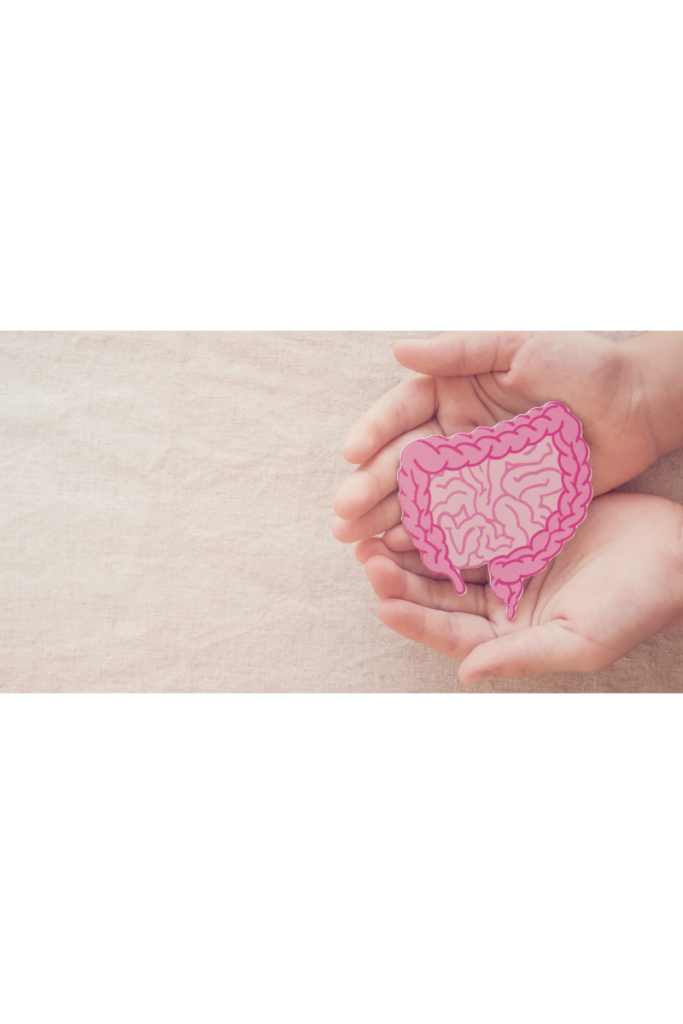The Gut and Brain Connection: Why Your Physical and Mental Health Are Linked
Have you ever considered that your gut might determine how your social interactions work or how you feel? The relationship between your gut and brain is more intricate than we commonly think.
It’s fascinating to learn how closely connected they are, and how taking care of both is essential to avoid irreversible health conditions. While it may sound strange, investing in your gut health now can have long-lasting benefits for both your physical and mental health. Mood disorders and mental stress are more linked with gastrointestinal functions than you would think. It turns out that what you put in your body affects it wholly.
To better understand this, let’s dive into the gut-brain connection to learn how it affects our overall health and well-being.
How Your Gut and Brain Are Connected
Have you heard of the term “second brain”? It’s often used to describe the gut because it’s home to a complex network of neurons and neurotransmitters that communicate directly with the brain.
The gut and brain connection, also known as the brain-gut axis, is a two-way communication system that involves the central and enteric nervous systems. This connection is crucial for maintaining gut health and promoting overall wellness.
The vagus nerve, which connects the brain and the gut, plays a significant role in this connection. Think of it as the Wi-Fi signal that connects what’s going on in the gut with the nervous system in the brain. This nerve is responsible for transmitting information from the gut to the brain, allowing the brain to monitor and regulate the digestive system. In turn, everything that’s going on in the gut is directly received and transmitted to the rest of the body by the brain. It’s all connected.
Unfortunately, issues like irritable bowel syndrome (IBS) can disrupt this gut-brain communication, which impacts your overall health.

Bacteria and its Role in Gut Health
The intestinal microbiota, or gut bacteria, play a critical role in the gut-brain axis.
Gut microbiota can influence gut motility, and gastrointestinal functions, and even trigger mood and emotional responses. Harmful bacteria in the gut can damage the gut barrier, leading to an increase in inflammation and the development of gastrointestinal symptoms such as abdominal pain.
On the other hand, the presence of beneficial live bacteria or probiotics in the gut can help regulate gut motility and improve gut health. Probiotic supplements and fermented foods have been shown to positively impact the gut microbiome, leading to improvements in digestive health and overall mental health.
It’s unsurprising that physical and chemical connections between the gut and the brain enable gut feelings and emotional responses.
Progressive Diseases and Your Gut Health
An unhealthy gut can also contribute to various progressive diseases. Some studies suggest that gut health plays a significant role in the development of autoimmune disorders, such as lupus and rheumatoid arthritis. Inflammatory bowel disease (IBD), which includes Crohn’s disease and ulcerative colitis, is another progressive disease that can be impacted by gut health.
This is why it’s crucial to take care of our gut health, which ultimately impacts your overall well-being.
By taking proper care of your gut, you’ll be able to reduce the probability of developing long-lasting health disorders.
Beyond the physical connection
While it is essential to understand the physical connection and health implications the gut and brain maintain, this goes far beyond that. Recent research suggests that the gut and brain connection goes past just the transmission of information between the two organs.
As mentioned before, the gut is home to trillions of bacteria, viruses, and fungi that make up the gut microbiome. These microorganisms play a crucial role in maintaining gut health, aiding digestion, and supporting the immune system. Recent studies have shown that the gut microbiome can also impact brain function and mental health.
How Your Gut Affects Your Mood and Mental Health
Now that we understand better how the gut-brain connection works, it’s easier to see why a healthy gut is so essential for good mental health.
The gut microbiome produces neurotransmitters, such as serotonin and dopamine, which are essential for regulating mood, sleep, and appetite. In fact, up to 95% of the body’s serotonin is produced in the gut. An imbalance in the gut microbiome can lead to a reduction in neurotransmitter production, leading to mental health issues like anxiety, depression, and even dementia. For example, a healthy gut microbiome can reduce overall inflammation, which has been linked to depression and anxiety.

Additionally, recent research suggests that the bacteria in our gut can affect our emotions and thinking abilities. Some gut bacteria produce oxytocin, a hormone that promotes social behavior. Others produce substances that cause symptoms of anxiety and depression, while some can help us stay calm during stressful situations.
It’s fascinating to think that the bacteria in our gut could have such a significant impact on our mental health.
The gut-brain connection also plays a role in regulating the stress response.
Chronic stress can lead to an overactive stress response, which can damage the gut lining and negatively impact the gut microbiome.
Finally, the gut microbiome can impact brain function and cognitive performance. Studies have shown that individuals with a healthy gut microbiome perform better on cognitive tasks and have improved memory and attention span.
By supporting your gut health, you can improve your mood, memory, and cognitive function.
Taking Care of Your Gut: Diet, Exercise, and Supplements
So, what can we do to support our gut health? Well, it starts with a healthy diet filled with whole, nutrient-dense foods. There is no “one-size fits all” and it’s important to take this decision with all the proper information. While avoiding processed foods is good in general, a personalized consult can help you determine what your body needs or doesn’t specifically.
Additionally, exercise, stress reduction, and good sleep are also vital factors in supporting gut health.
If you want to give your gut an extra boost, supplements can also help, as long as you’re taking the right ones. For example, probiotics can support a healthy gut microbiome, while prebiotics can feed the good bacteria in our gut. Other supplements, like digestive enzymes and omega-3 fatty acids, can also be beneficial.
In a nutshell, taking care of our gut is a big deal, and it has significant implications for our overall health and well-being. By investing in your health now, you can prevent a range of progressive diseases and improve your mental health.
So, let’s prioritize our health and feel our best, both physically and mentally!
Invest in Your Health Now for a Brighter Future
If you’re interested in learning more about gut health and targeted supplementation, feel free to contact me directly to see how I can help. I’ve experienced the benefits of taking charge of your body and nutrition in the best way possible. I can help you achieve that too and I promise you’ll be surprised by the many benefits you’ll see.
With the right support, you can take control of your health and feel amazing!
Get in touch so we can start working together
April 8, 2023
Leave a Reply Cancel reply
SUBSCRIBE NOW
Are you ready?
Achieve an External and Internal Health Transformation. Start today with us.
Be the first to comment